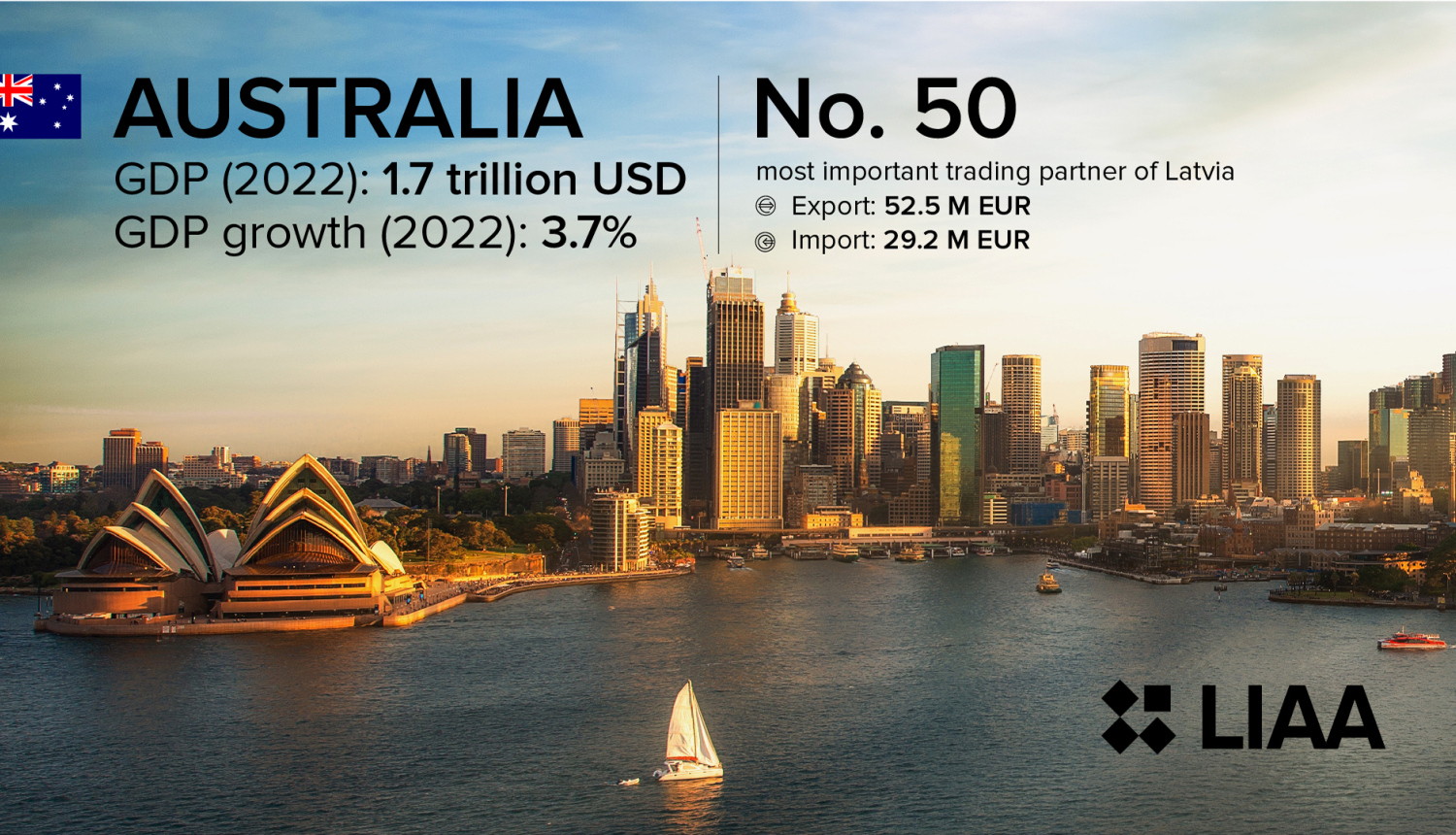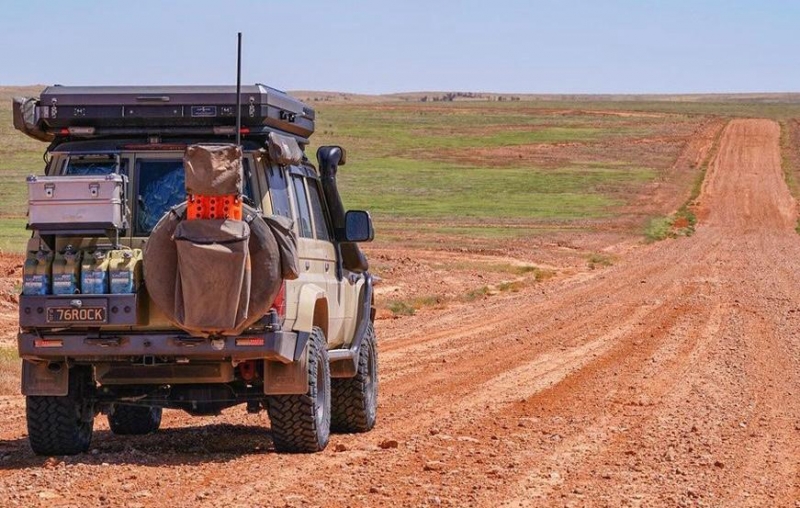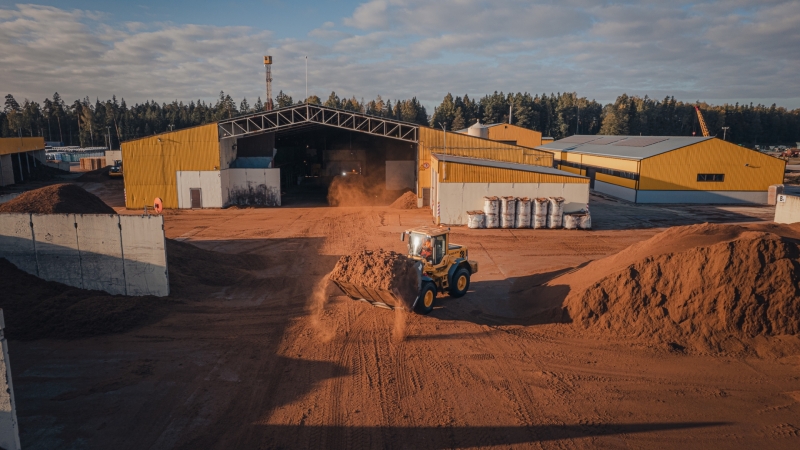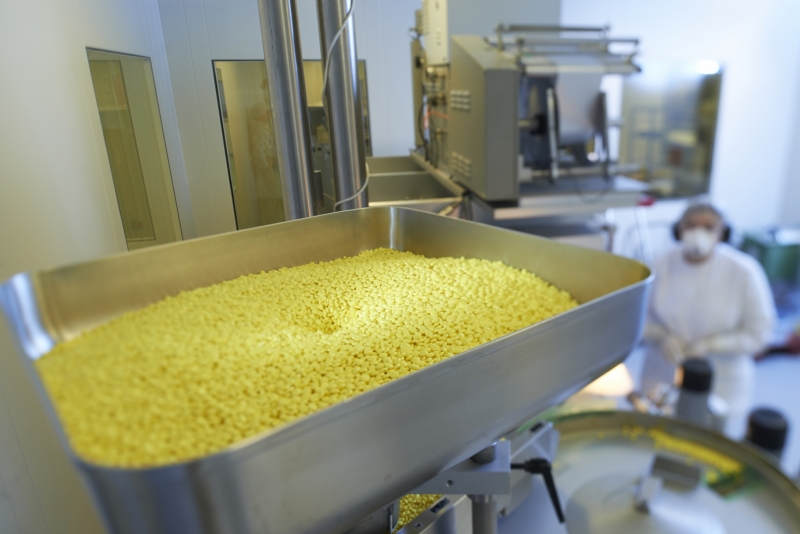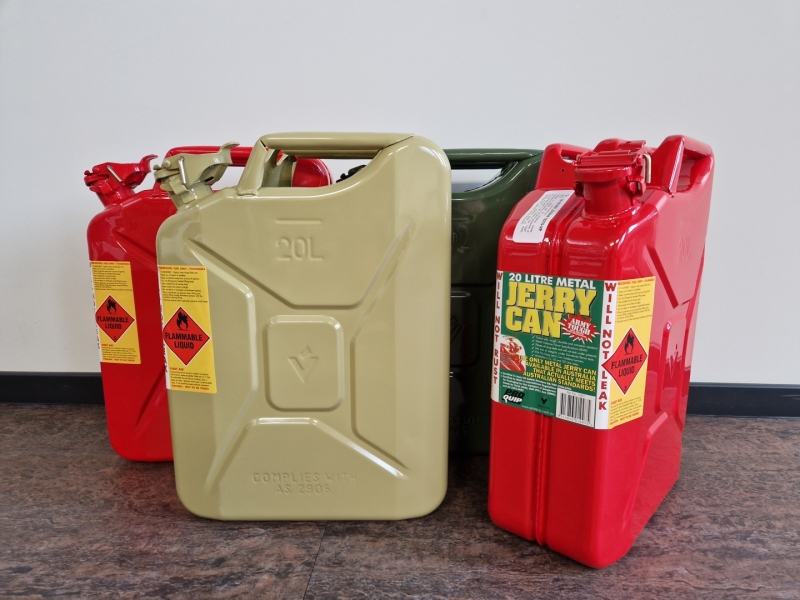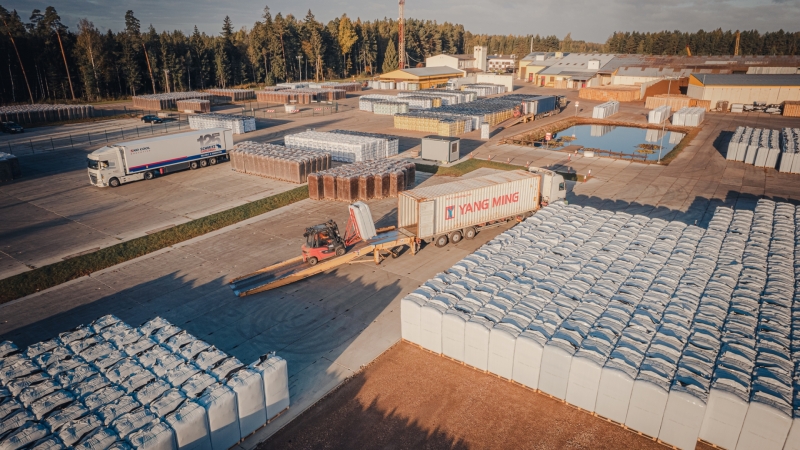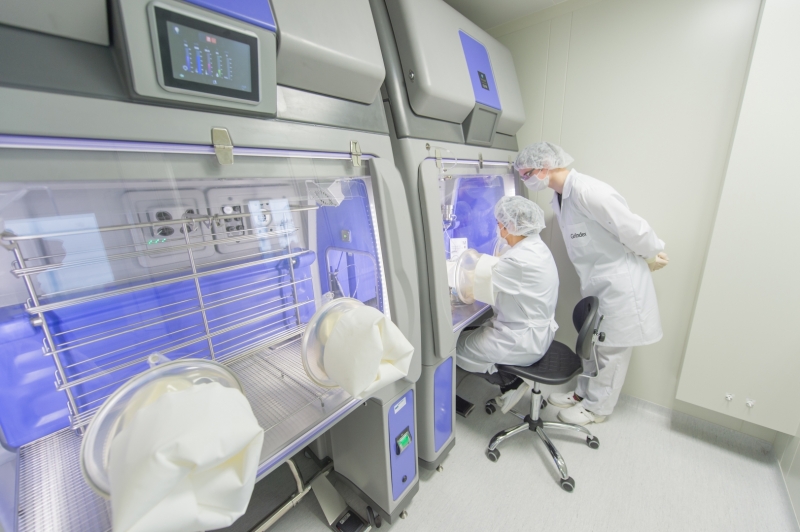These days, distance is no longer considered an obstacle and a market with 26 million consumers also beckons Latvian manufacturers who see great trade potential and people’s openness and preparedness to cooperate.
The European Union is Australia’s third largest trading partner and the volume of trade between Australia and Latvia is also showing a growing trend. Two years ago, the Latvian Embassy in Australia was opened and at the beginning of this year we finally received an economic representation of our country on that continent. “With the opening of the Embassy and the forthcoming free trade agreements, the economic representative office was a logical next step that shows the importance of this market for Latvia”, said Sabīne Kazaka, Head of the Investment and Development Agency of Latvia (LIAA) Representative Office in Australia. The free trade agreement has been discussed since 2018 and its signing would mean lower tariffs on various export goods. This step is expected to boost interest in Europe. “We can already see a growing interest in Latvian solutions, so the presence of Latvian representatives is significant and valuable,” says Kazaka.
In 2022, total sales of Latvian goods and services in Australia amounted to EUR 81.7 million. Australia is in the 50th place among Latvia’s foreign trade partners. The export of goods and services to Australia was EUR 52.5 million, or 0.2% of total Latvian exports. At the same time, imports reached EUR 29.2 million. “In comparison with 2021, last year exports grew by 31% and imports by 11%. The trend is upward, and it is clear that with the opening of the Embassy and the representative office the exports will definitely grow”, Kazaka predicts.
Today, traditional industries are in the lead
The three largest groups of Latvian goods exported to Australia are timber and timber products, machinery, tools and electrical equipment, and various minerals, such as peat. Export to Australia accounts for about 1% of sales of the peat producer SIA Laflora and in recent years the demand has been growing. Irina Sintniece, Head of Exports at SIA Laflora, explains this growth by limited offer from other companies and the volatility of the peat market. “Peat substrate is great for growing almost anything, but considering a very different climate, water availability, soil composition and local crops in the Baltics and in Australia, we offer them a raw material, i.e. fractionated peat without additives, so that they can add the necessary mineral fertiliser and offer a product which meets the needs of the local market”, Sintniece explained.
Kazaka points out that the timber deficit in Australia has opened more opportunities for Latvian companies. Last year, there were multiple building projects which initially used Australian and New Zealand timber, but halfway into the projects, the lack of the products and high prices forced them to turn to European timber as well. Considering differences in climate, soil and humidity, combining such products is not always straightforward or even possible, so Australian companies are looking into getting all their timber from one country or region. “Currently, I am working with several Australian companies which are planning to buy all timber for their projects from Europe and possibly from Latvia. Interest in Latvian timber is really great, as evidenced by the Australian companies’ visit to Latvia at the end of June”, said Kazaka.
A large market with 26 million people
“Australia has a population of 26 million and in the past 20 years it has grown by five million”, Juris Hmeļņickis, Chair of the Board of the pharmaceutical company AS Grindeks, noted. A growing population means an aging society, and sooner or later they will need drugs. For many years, Grindeks has been working with corporate customers but last year saw an opportunity to start offering its product to the end consumer. “We will create a portfolio of 50 to 60 products which we can offer our patients straight away. We have chosen Australia as our strategic market where we will offer a wider range of drugs rather than just a few products as before”, says Hmelnickis.
Kazaka adds that the market is large, but competition is fierce indeed. Nonetheless, she believes that quality goods and services with high added value have great potential. The main thing is to offer a competitive price. “As a result of the Covid-19 pandemic, container prices skyrocketed and many Latvian companies were forced to stop their deliveries for a while, but now the costs are getting close to what they were before the pandemic”, Kazaka says.
The product should be prepared for a long journey
It takes two or sometimes even three months for a container to reach Australia by sea. “Freights are subjected to temperature fluctuations and humidity so the companies need to ensure that the product will be exactly as it should be when it arrives at its destination”, Kazaka notes.
Mārtiņš Orskis, Head of Sales of the manufacturer of petrol cans SIA VALPRO, explained that very salty sea water can affect quality of the products. That is why, before accepting your first order, you must know whether this type of delivery is suitable and what packaging will work best”, he added.
He recommends discussing the delivery forecasts with the customer in due time to avoid unpleasant surprises. At the same time, Sinniece recommends keeping in mind the delivery cost fluctuations, as logistics is a significant part thereof and affects the price of the product.
“Freight services to Australia are not cheap, so everyone is trying to keep the costs down. We send large freight by sea, which of course takes longer. However, if two or three pallets are ordered, we will fly them there”, says J. Hmelnickis.
M. Orskis reminds us that Australia has its own dollar. That is why he thinks it is better to get a partner to agree to payments in euros. “Another thing to discuss is a time zone for communication and meetings”, said Orskis.
No need to be afraid of certification
Orskis says that almost everywhere in the world imported goods are to be certified, as is also the case in Australia. “All goods must be certified to meet their requirements. The huge difference from other countries is that Australia sets the bar very high and simply does not allow imports of any low-quality products”, he said. It has certain advantages. For example, in one of the tests, VALPRO petrol cans were dropped to the ground from a height, and it appeared that sometimes the lids opened. Seeking a solution for this problem, the company came up with a special latch to secure the lid. Australians and Latvians patented this solution together. “Thus, thanks to the Australian high standards we have made a valuable improvement to our product”, shared his experience Orskis.
Kazaka also urges fellow entrepreneurs not to be afraid of certification. Of course, this process requires effort and time, but the rules are clear: “You just have to be patient.” For Grindex, the journey from drug registration to marketing takes from eighteen months to two years over there. Now, Australia accounts for about 1% of the company’s sales. “We export to more than 100 countries. Of course, we have markets with higher export figures, but we are happy about each steady and regular sales channel. We are looking to increase our turnover in Australia significantly”, Hmelnickis says. He adds that while in Australia, you can also work on exports to New Zealand. That is to say that if the products are already registered in Australia, it gives the company more credibility in the eyes of the New Zealand authorities and its will be easier to enter that market. “We are not focusing on New Zealand at the moment, but I think that in the long run, it may become another export country with steady sales”, he says.
A country the size of a continent with multiple time zones
“When a country occupies a whole continent and has six states with their own constitutions, parliaments and even climate, it is obvious that demand will vary region from region”, says Kazaka.
It’s winter in Australia now, and snow and winter fun are only a four-hour drive away from Melbourne while just a two-hour flight separates you from enjoying sun and 20+ degrees.
Temperature differences also mean different wildlife. “For example, Adelaide in South Australia is a home to the white ant, which is the most devastating wood termite. Although timber frame houses are very common in Australia, there are no big market opportunities for timber frame, terrace or fence manufacturers in that region”, Kazaka explains.
Almost every Australian owns a petrol can made in Latvia
VALPRO’s history in Australia is a long one. “The factory where VALPRO currently operates has been manufacturing fire-fighting equipment and petrol cans since the last century. Even back then, petrol cans were making their way to Australia. During Atmoda years, Australians sought their old partners, as they wanted to get the quality they already knew. So, in 1992, together with Australians, Latvians privatised the factory and established the joint venture A/S Valpro Corp. Currently, Australia contributes about 5% to VALPRO overall sales.
The company's classic 20-litre petrol can is owned by pretty much every Australian. “One thing is for sure: our capacity is impressive. However, if we keep offering the same thing, sooner or later we will fill the market to the brim. That is why we have developed new products. We also have 2, 5 and 10 litre cans, as well as various accessories and pouring spouts for cars”, Orskis says.
Although Australia is not the most densely populated country, people have to travel long distances. Camping is popular there and it has very developed agriculture – and both need petrol backup. “So, the demand for our products is great”, he added.
Partners are the key to the market
S. Kazaka points out that partners are often used for a successful market entry and provide information about business culture and human resources in the target market while also ensuring a presence effect. “Here, same as in other countries, trust is built on meeting in person. That is why, for a successful start of business here, I recommend coming and meeting people in person rather than just working through business partners”, she pointed out.
M. Orskis also believes that you should come and meet with your partners in person to establish contacts and build a trusting relationship. “Emails are a great, but it is always worthwhile to meet your partners in person. Australia has a large enough Latvian diaspora, the LIAA representative office and the embassy, and you should use these contacts. They are responsive and want Latvian companies to succeed in this market”, Hmelnickis says.
I. Sintniece recommends finding a reliable partner who can deal with problems and find compromises. “For example, once we received a claim from the client that termites were found in pallets, and they had already started to damage the timber. Sawmills at our latitude do not have termites, so we had to visit our delivery partners. After a careful assessment of the situation, it turned out that peat from containers had been unloaded in the warehouse and remained there for months resulting in termite infestation of the pallets. Australia is way too far away to risk working with a financially unstable company or to increase sales too quickly”, he shared his experience.
Open but on their own terms
“As any other market, Australia has its own peculiarities. The business environment is different, but you can see that Australians work with companies in Europe a lot and are open to cooperation with Latvia”, Kazaka says. Hmelnickis believes that Australia offers steady sales, a stable currency and clear rules of the game. “There are strict rules to follow when coming to the Australian market. I got the impression that they are very pedantic – everything is planned, and everything is in its place. I like it, and I can see that it is possible to build a steady and growing business there in the long term”, he said, adding that people are open in that market. Everyone whom Hmelnickis has met are immigrants: they either came to Australia decades ago or were born there, but their parents were immigrants. “The state is tolerant to incomers. You can even feel it on the streets”, he says.
Kazaka lives and works in Melbourne and describes the community there as international and a very open one. “Australian indigenous peoples are aborigines who currently account for about 3% of the population. Almost everyone I’ve met have parents or grandparents who had come to Australia, so the notion of moving to the other side of the world is not that strange to them and they are very welcoming”, Kazaka noted.
Understanding and ready to do business
According to Orsky’s observations, Australians are understanding, ready to cooperate and open to various solutions. For example, there is different information inscribed on VALPRO petrol cans, and it takes a lot of time to put it there. When the manufacturer simply asked its partners if it was really necessary, it turned out that it was not. He concludes that partners in Australia are focused on cooperation and finding a solution together. Orski compares: “In Germany, everything is very punctual, strict and to the letter of the contract. It’s not like that in Australia where partners are ready to discuss everything. It is important to remember it in daily communication with Australians.”
The company has been in communication with its partners for 30 years now. People in the partner company change from time to time, but the friendly relationship continues. “If you listen to a conversation between my colleague and our Australian partner, you will hear that they first discuss how the family is doing and only then get to the questions about an order. It is important to build a close relationship and maintain a friendly attitude. I believe that is one of the keys to our success in Australia”, Orskis is confident. S. Kazaka’s experience also shows that a close relationship is the key to a long-term cooperation, but you cannot overstep the boundaries where a relationship leads to a breach of contract.
Answers will not always come quickly
Although English does not have the status of the official language in Australia, de facto it is used like one, and Latvian companies have no problem communicating with their partners in that market. Hmelnickis notes that Australian English is easy to understand and cannot be compared, for example, with Scots who also speak English, but their accent is much more difficult to understand.
Kazaka points out that you don’t come across the Australian accent in the business environment a lot, but often pronunciation and even words may be different. Communication with Australian companies is a bit slower than to what we are used in Latvia, and you have to remember that with the vacation season, the business environment slows down a bit from mid-December to mid-January. Kazaka does not recommend planning any agreement signing, visits or business meetings for that period.
“After visits of Latvian entrepreneurs to Australia and Australian businesses visiting Latvia, I can say that decision-making can be quick when both parties have clear, acceptable rules and a good rapport. In some instances, we were waiting for a response from an Australian company for a long time, but as soon as we offered a face-to-face meeting we received their answer immediately, which goes to show how important face-to-face meetings are”, Kazaka noted.
Opportunities not to be missed
“Even one successful project gives a great growth potential in the Australian market, as previous experience is highly valued and shows that long distance is not a problem for the company”, Kazaka says. That is why she urges entrepreneurs to narrow down the target audience a bit and work out the profile of their cooperation partner in more detail. “Everything is based on the market and demand research, so the LIAA representative offices are a great starting point for exploring a new export market. Every country has something that you need to know before establishing any cooperation to ensure a more successful market entry. We also work with large companies on a daily basis helping them to increase their market share or launch new products or services in the market, so the main thing is to know your abilities and use them”, Kazaka said. She sees great potential in the information and communication technologies and the digital sector as a whole.
“Currently, Latvian technology solutions are being used in Australia and have been for a couple of months already. In addition to a greater interest in the existing solutions, I have also seen potential for other companies and digital services”, Kazaka noted. She also points out that in Australia, Internet service is unstable and there are many areas without coverage.
Ministers’ visits and a trade mission are planned for this year, as well as visits of entrepreneurs and investors from both countries. “First Latvian companies have already been received in Australia and two more visits are planned within a month. There is also an apparent interest from investors. I am currently working on a visit to Latvia in September. In my opinion, the number of visits even before the trade mission is a great indicator of the interest of businesses and the importance of the market and, hopefully, it will also convince other Latvians that distance is not an obstacle”, Kazaka says.
Article made in collaboration with The Latvian Exporters Association "The Red Jackets". www.eksportabarometrs.lv.



